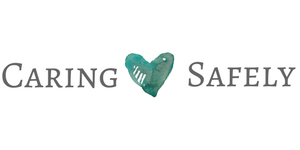Menu
Modules

Question:
Hi Char,
In doing the exercise for module one, I came across a question regarding vicarious trauma. I made the definition my own, but when I thought of an example it had to do with taking my own feelings from the past regarding a similar topic and relating it to how my clients feel. IS this vicarious trauma, compassion or a little of both?
Answer:
Vicarious trauma is more so the impact, on you, from listening to someone’s traumatic experience or seeing what has happened to them from a traumatic experience. But if we have a personal history of trauma (and many helpers do) then it can get a bit confusing.
If you are using a past experience, that is similar to your client’s, in order to empathize with them, that is also different.
Let’s look at a scenario, that could happen to a helper, in various ways:
1) Someone tells me that they recently had to euthanized their pet dog, because of illness. I can draw on my prior feelings of grief, associated with pet loss, to connect with this human, who is also feeling grief. In this situation, there is grief, but no trauma for me. And in this situation, I have processed my grief so that when I draw on it to empathize, I am not being triggered into an emotional state that impacts my ability to care for that person. Please note that we do want to be careful on drawing from our own past experiences to empathize to ensure we are not “transferring” our own “stuff” onto the people we help:)
2) If someone told me that their dog died, because of a traumatic experience on a dog walk, and they share the graphic details of that experience, I may begin to feel anxious/agitated and begin to have images/nightmares/thoughts about what they experienced, or I may begin to change my behaviour (such as taking my dog out for walks) because of their experience, that is vicarious trauma. I would be experiencing symptoms of PTSD because of my exposure to their trauma, not mine.
3) Now if someone told me that their dog has died because of a traumatic experience, and I have a history of having a dog die because of a traumatic experience, something else could happen. It could cause me to think back to my own traumatic experience and I might begin to feel anxious/agitated/scared/sad and perhaps I begin to have thoughts/images/nightmares of my experience. I may avoid behaviours such as taking my dog out. This would be my own unresolved PTSD that was triggered by what my client shared. In this situation, I might also have images/thoughts/nightmares about what happened to them as well – so it would be a mix of my primary trauma and vicarious trauma.
This is where our own personal histories come into effect and why we need to work on healing from our past losses and traumas. If we have past trauma, and a client has a similar one, it can be hard to tell if we are being triggered by their trauma or our own past trauma.
